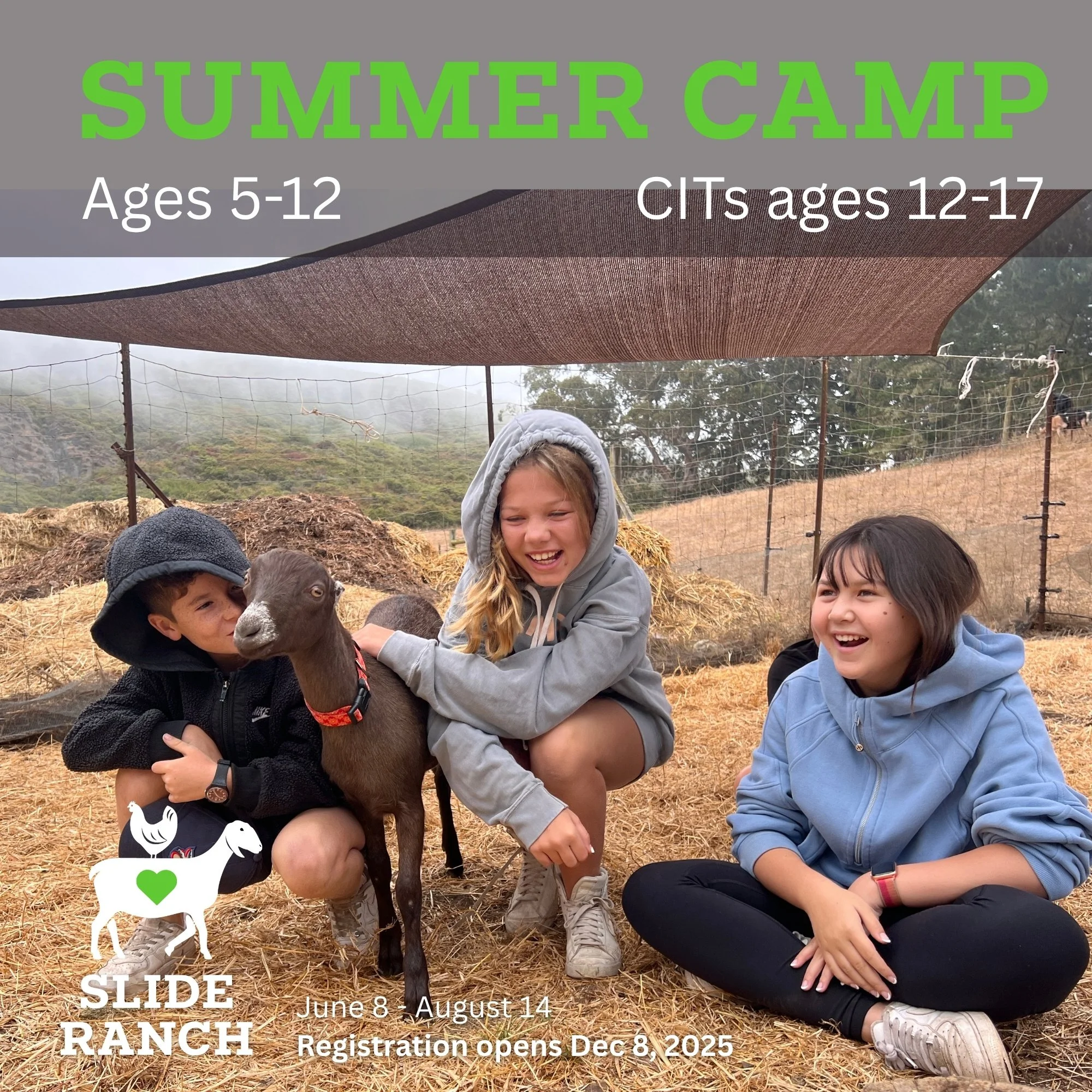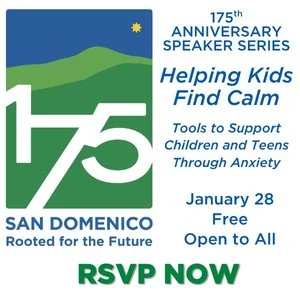Q&A with Tony Award-nominated songwriters of James and the Giant Peach, Benj Pasek and Justin Paul
/Tickets on sale NOW!
Marin Theatre Company, Mill Valley, Nov 6-Nov 9
Freight & Salvage, Berkeley, Nov 16-Dec 14
Dougherty Valley Performing Arts Center, San Ramon Dec 20-Dec 21
Children’s Creativity Museum Theater, San Francisco, Dec 27-Jan 4
The Bay Area Children’s Theater (BACT) brings the surreal world, inspired by Roald Dahl’s classic tale of James and the Giant Peach, to theaters all around the Bay Area. The story is about James, an orphaned boy, who escapes from his wicked aunts aboard an enormous enchanted peach inhabited by a bevy of bugs. I had a chance to speak to the Tony Award-nominated songwriters of James and the Giant Peach, Benj Pasek and Justin Paul, to give some insight on their creative process and background about writing the music for James and the Giant Peach.
What was your childhood like?
Justin I grew up in a musical home. My parents played piano, guitar and sang. When I was 10, my parents were looking for an outlet for me to do something that included singing. At that age, there were not a lot of options but they found musical theatre. Growing up, I performed in lots of plays. I loved singing, dancing, piano, acting and percussion. I had a very rich musical and theatrical childhood.
Benj Writing, poetry, and music was introduced early in my life. My mom is a developmental psychologist and on the side she liked to write songs to capture moments in our lives. This became very popular at my preschool. My mom and her friend became a children’s music duo and continued to write many albums of kids music about growing up such as “Jumping in a Puddle” and “Hugs and Kisses.” I grew up in an environment of turning every moment of life into song. As I got older, I became interested in writing my own songs. I was so lucky to grow up in a very supportive environment where theatre and music was accessible and encouraged.
As a child, what did you want to be when you grew up?
Justin I knew musical theatre was something I had a passion for but I didn’t know I could do this as a career. I thought of it as just a fun way to express myself, exercise that creative muscle, and develop my talent. It wasn’t until high school when I realized that people do this for a living. Then I knew musical theatre was going to be more then just a fun hobby.
Benj Career day at school, there was no one who came to say “We write musicals, come and join us.” Even in most drama programs, the only thing you are ever given access to is the idea of being an actor. When you are a sophomore or junior in high school you start thinking about where you want to go to college. You’re not thinking, is there a song writing school. There is not an undergraduate program for song writing for musical theatre out there anyway. No one is told all the professions that exist in theatre. We both really love performing in the world of musical theatre but then when we got to university, other doors opened up to us as possibilities in the field of musical theatre. When that happened, it became a real ah-ha moment for us.
Actors Derek Collard, Betsy Picart and Jack Sale. Photo by Melissa Nigro.
What advice would you give to a kid interested in pursuing theatre?
Benj What I have realize is the work we like the most and that we are most proud of is what we enjoy doing. If you can find joy in what ever you are pursuing you’ll find a career for that. Within song writing itself, when I find songs I have a passion for, I want to keep working on it.
For a kid, you might like painting and could look into a career in set design, or perhaps you prefer being in charge as oppose to being on the stage and you can manage the performance. People don’t realize, that in the arts, there are so many careers that you can pursue. We aren’t told that as kids. Both of us are very lucky that we were encouraged to follow our dreams as actors but that was the only option presented to us at the time. Follow what you love to do and eventually there is something that exists or create the career that you want just by following your passion.
For instance, Jennifer Ashely Tepper, created her own career by becoming a musical theatre historian and enthusiast. She’s not an actress or director. She created her own very specific career because she loves the world of Broadway and musical theatre. There is no one else like her. She is an historian of what is happening in the Broadway world, is a champion of new work, has written books, and she does this by creating her own path. Follow something that you love. Trust there will a way to make a living at it. I guarantee there is no college major or high school program that focuses on what Jennifer is most passionate for but it’s what she loves and she developed a career for herself because no one else does it the way she can.
Were there any special teacher that supported you?
Justin Too many to name. I grew up in Connecticut and went to public school. I was really lucky, the town I lived in had a real emphasis on the arts. The best part was the opportunities I was given. In high school, they let me conduct the orchestra and lead the choir. My teachers were very encouraging and realized by giving kids responsibility and letting them rise to that challenge, that it was an incredible way of teaching. I was surrounded by supportive teachers. I had an intense, strict, classical piano teacher that knew I didn’t practice. She saw I had musical talent and ability but classical piano wasn’t the thing for me. She was so patient and I continue to take lessons with her. To this day she comes to all my shows and she was at my wedding. It was a really supportive arts community. I couldn’t do anything I am doing without those teachers.
Benj I have a relatively similar experience. I grew up outside of Philadelphia and also had so many teachers who were fantastic and challenging me to learn about things outside what kids typically learn about. My 9th grade high school teacher had us perform “Angels in America.” Not many schools would have done such a mature play. Being exposed to challenging work makes kids rise to that level and aspire to excel. One thing Justin and I learned when writing for kids is that if you don’t challenge them, you are doing them a disservice. Kids want to be challenged, they want to lean in and take on more then what is expected of them. My favorite teachers are the ones that challenged me and introduced me to more sophisticated work meant for adults. It gave me an appetite to work more and it felt like I was not being talking down to. I am so appreciative to those teachers that exposed me to challenging work. This is the kind of work you have in the Bay Area. It is more complex and interesting and not all rainbows and puppy dogs. With James and the Giant Peach, we tried to create something that is a little edgy, makes you want to lean in and grab a piece of it.
What advice would you give to a parent to help support a kid passionate in theatre?
Justin It’s tough finding that balance. Like with the piano; I can’t tell you how many times I wanted to quit piano lessons. As a parent, you need to pay attention and know what your child really wants. My parents knew me well enough that when I said I wanted to quit piano, which I said a lot, they knew that I really didn’t want to quit piano. I just didn’t want to put in the hard work and practice. It was one of the things my parents did push me to do but to they knew me well enough to know that I would regret dropping it. I had to force myself to do the hard work, practice and prepare, because, ultimately I love music and playing piano. It’s important knowing when to push your kids. They’re just being kids.
Also make sure it is what they actually love. There were so many things I wanted to do but didn’t have time for. When you’re a kid in school, I don’t think you know exactly what you are going to do as an adult. Do you play baseball in 5th grade because you really love baseball or is it because all your friends are playing it? When thinking about how your kid spends that extracurricular time, it’s important for parents to really know what truly motivates their kid. A parent can tell what their kids are passionate at, excelling at, what is it a phase or fad, or just doing it to be with friends. Helping kids sort through all that will help you understand what it is they really love to do.
Both of our parent were very supportive. There have been times where I’ve said this seems crazy to do theater, can I really make a profession of that? My parents had faith at times when I did not have faith in myself. They encouraged me to keep going. You would think it would be the opposite where a kid will say I want to be an actor or musician and a parent says how are you going to make money? It was the opposite for me; I said how am I going to make money and my parents would say you can figure it out if this is what you want to do.
You met at the University of Michigan. What was that spark that helped you realize you wanted to collaborate on projects together?
Justin We met at our freshman orientation the summer before we started at the University of Michigan and clicked as friends right away. We were members of the musical theatre department which was separate from the regular theatre department. There was only about 20 kids per class. In our freshman year, we dabbled in writing songs together, played piano, wrote lyrics, and had fun. In our sophomore year, we were both cast in very small roles in the school musical. This was embarrassing for us, but it inspired us to write our own shows that we can form our identity with and not be known as the guys that got cast in the really small roles. We wrote our first show together called “Edges” and people were receptive to it.
This happened in 2005, which was same year Facebook and Youtube first appeared. We were writing songs about 19 year olds, because we were 19, the people using the technology were our age, and we were able to spread our songs online using this new technology. It was a really exciting time.
You trained as actors and not musicians. How did you make that transition and how does this benefit what you are trying to achieve?
Justin We started by looking into other peoples songs to interpret. As actors, that led us to think about how we create our songs? We applied rules you learn as an actor to songs. Asking questions like “whose my character speaking to”, “what does my character want,” and figure ways to learn how to act a song. We used our knowledge as performers as much, if not more then, anything we learned about composition or technical music. So much of theatre is about the emotions you are capturing, what feels right and what feel honest about the characters and the story. That trumps any conventional musical training or other things you might study up on. What we learned as actors guides us as songwriters.
Do you have favorite composers?
Benj We were always fans of the Golden Age of songwriters in Broadway. We moved to New York and and got involved in a number of writing programs and met amazing people in our industry. We had the opportunity to meet and be mentored by our contemporary peers. We were in a year long program with Stephen Flaherty and Lynn Ahrens where we would bring in songs and notes and they would give us feedback. Steven Schwatrz and Alan Menken would come to our shows or listen to our albums and send us notes. The amazing things about theatre is that so many of our heroes we’ve gotten to actually meet and they are eager to help and pass along what they’ve learned. There is nothing better then to meet, work and learn from a living legend.
What do you each bring when you collaborate on a piece?
Benj Justin is a wonderful musician and handles that component of what we do. I write poetry and stories and like the lyric element of musical theatre. We have very different personality types. Sometimes we get frustrated with each other but this is advantageous for us because we approach life from different perspectives and challenge each other. That spark means there is a lack of complacency. There is such a great advantage to disagreeing, and I mean it as a positive, because that fight is what allows something to go from being good to being great. This tension, coming at things from different angles, is what propels the song forward.
Can you give me the inside scoop about what it takes to create a Broadway musical?
Benj The biggest part of writing is creating something that people can relate to, respond to and that resonates with them. That all comes down to the music, lyrics, script, and song. Then you have 60-100 people coming together, working on their different specialities, to tell one story. There is sets, lights, choreography, wigs, make-up, sound, actors, dancers, back up, music, costumes, producers, marketing, etc. There are so many people doing so many different things and some how they all have to align in a magical way. It is a difficult and miraculous thing to get all those creative people to come together. When it does work, that is the magic of Broadway.
Roald Dahl’s book has a very heavy dark humor to it. What is at the heart of this story that you are telling and how does the music support it? How do you turn such difficult subject matters into something upbeat?
Justin At the heart of the story is a young boy who is an orphan and looking for some sort of family and place in the world. What you see is a bizarre family that forms and it’s a wonderful thing. We all have our ‘found family.’ Sometimes that includes blood relatives or friends. There are dark elements in the book but it would not translate well on stage to an audience, especially a family audience. In an earlier iteration of the show, we explored some of the darker elements of the story and ended up taking it out. James has these horribly abusive aunts that we kept but with musical theatre we are able to add humor to these characters. While they are still horrible, they are fun as a vaudevillian type of characters and we’ve written some fun songs for them. Audiences know in the end James will prevail but having a musical aspect helps us get a funnier side to those characters. They are so over the top you have permission to laugh at them. Audiences enjoy going with these characters instead of just hating them and they end up being audience favorites.
How would you describe the musical style of the James?
Benj It’s a wide palette we are working in because it is such a fantastical bizarre story and we have over the top aunt characters and anthropomorphized insects. It’s a wacky world so we wrote it in what ever style felt best for the moment and characters. We have everything from the aunts singing in a vaudevillian style, to James as our emotional musical theater and song, the insects often sing in a big band-swing-gospil style and scat makes all these great sounds that insects make. The earthworm has to put on a show to attract the seagulls and performs a latin number. It’s wide open stylistically. Once you have 6ft earthworm singing and dancing, in my opinion, you are not beholden to any rule. Then you can write what feels right for that moment. We had a chance to explore all types of music which made writing James really fun.
How did the Artist Showcase at the Freight & Salvage in Berkeley go?
Justin The Artist Showcase was great. We got to come somewhere new and meet a group of people who are so passionate. From the kids who got up on stage and performed with us, to the actors and getting to meet Nina Meehan, the director of Bay Area Children’s Theatre. It has been amazing to be introduced to a community that is doing such great work and getting a whole new generation of theatre goers and families to the theatre to create amazing memories with their kids.
What is the best comment you ever received from a young audience member?
Justin Sometimes they have “talk backs” after the shows where we have a chance to meet the audience with the actors. In Seattle, there was a boy, about 7 years old, who said he had lost his friend. The story of James deals with very real issues of kids loosing people that they love and what happens to people after they leave us. The way we handle death in the play is everywhere that you are, the people you loose never leave us but are apart of us, they surround us and are there for us and that resonated with this boy. It was incredibly moving to see something we had written was the catalyst that made him speak and connect to this loss that he had. It was the first time he talked about loosing his friend because he was in a place that he felt safe and supported. To us, that’s what the goal of art is, to be able to reflect what is happening in our lives and allow us to explore ourselves in the world around us and how we feel about the lives we are living. For this boy, what we had written was so inspiring that he felt he could talk about friends death and how to process that, it was so moving. You don’t think you are there doing anything but to tell a good story; but when it actually resonates with kids it is a real inspiring thing.
If I sat in your car and turned on the stereo – what would be playing?
Benj We both listen to eclectic music. We like everything from Judy Garland to Taylor Swift. We have a real diversity of music. We draw inspiration from a lot of different styles. For us when we think about writing, it’s all dictated by the story we are telling. We never say, “we’re gonna write this style of music and hope that the story works.” We approach the story we want to tell and figure out what kind of music serves that. We have an appreciation for a lot of different styles because that means you can tell lots of different stories so we love diving into different worlds. We have an appreciation for anything from Broadway musicals to pop.
Finish this sentence – The best thing about being a composer, songwriter is…..?
Benj You get to encapsulate little moments that live on forever. It’s like a photograph except you are setting words to music. The words are what tells you the idea while the music contains the emotion. You combine it with this emotional feeling and create a mood that last the rest of your life.
What’s next?
Justin We are working on a couple of films that are movie musicals and also stage musicals. We love writing for Broadway stage and companies like the Bay Area Children’s Theatre. We’re really excited to dive into the film world more and the things we are able to do in film are different, exciting, new and challenging. It’s an exciting new chapter starting for us.
We are so excited about the production of James. It’s a great wacky colorful show that all families will enjoy experiencing.














